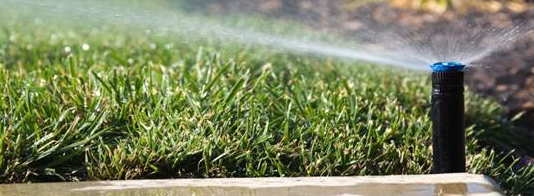Santa Cruz County Water Efficient Landscape Ordinance (WELO)
May 13, 2013 Leave a comment
In March 2013, the County of Santa Cruz Board of Supervisors adopted the Water Efficient Landscape Ordinance (WELO) in an effort to comply with State law which requires all local jurisdictions to enforce water efficiency standards for landscaping. The County explains that the overall goal of the WELO is to lower the County’s demand for water, particularly during the months of April through October, when water needs are at their highest.
Simply put, the WELO mandates that all landscapes installed with new buildings comply with the new water efficiency standards for landscaping (see exemptions below; most single-family residential infill projects will be exempt). Requirements include (but are not limited to) the preparation of a landscape plan by a certified/licensed professional, limits on high-water plants and turf, invasive plant control requirements, specifications for irrigation systems, and special requirements for streetscaping. The WELO also limits the quantity of water that may be used to irrigate landscaping.
The WELO applies to both residential and commercial projects. In order to obtain a building permit for new construction, a detailed Landscape Plan or a Water Efficient Landscape Application Checklist & Certificate must be submitted (Application Checklist & Certificate can be found here and here). To assist with calculating your irrigation water allowance, the County has developed an estimator (via Excel spreadsheet), which can be found here.
An eligible inspector (certified or licensed professional) must also be commissioned prior to landscaping installation and will inspect the process through completion.
The ordinance does, however, allow for projects to be exempt from the WELO if they meet certain criteria. Exempt projects include (Ordinance 13.13.030):
- Residential remodels, additions, and Second Units
- New residential buildings on parcels smaller than 10,000 square feet
- Landscaping area smaller than 2,500 square feet for a residential project
- Agricultural crops
- Edible plant areas within family or community gardens
- Ecological restoration projects
- Plants cultivated by botanical institutions
- Stormwater treatments
- Paddocks or pastures
- Artificial turf
For more information about the WELO, whether it applies to your project, and/or the requirements, feel free to contact our office.
